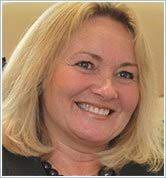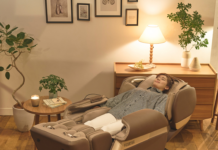 Lynn Crilly
Lynn Crilly
Changes to the NHS 111’s 24-hour medical helpline to support people experiencing a mental health crisis have been welcomed by a mental health expert.
Lynn Crilly, an author and counsellor who specialises in supporting those living with conditions including anorexia and bulimia, has described the move as ‘a huge step forward in the recognition of mental health issues.’
Ms Crilly, whose daughter Samantha was diagnosed with an eating disorder and OCD 20 years ago, said the move was needed to ensure the conditions are given the same attention as physical conditions.
NHS England announced the move to allow the millions of adults and children who need support for a mental health crisis to call the 24 hour helpline and press option 2 to be directed to a mental health specialist.
Although new to England, the service has been available in Wales and Scotland for a number of months.
“Having been involved in mental health care in England for the past 20 years, this to me is a huge step forward in the recognition of mental health issues as equal to physical health problems,,” Lynn Crilly said.
“Now people in need of medical support can speak to a specialist who can listen and guide them to services such as face to face community support or access to services like ‘crisis cafes’ or other safe places.”
But the campaigner, who has produced a film to raise awareness of living with an eating disorder, says she will “wait to see how this service plays out” in what she described as a “broken” mental health service and says some are “sceptical”.
“There are record numbers of people experiencing poor mental health in an already over stretched and underfunded, broken mental health system,” she said.
“With waiting lists at an all-time high, there are some who are sceptical that this service will work.
“In a recent survey amongst 1500 of my followers, 55% of people said they would use the new NHS 111 service for mental health support.
“The same people asked if they thought the service would help, with 53% responding yes and 43% saying no.
“Many people felt that the demand on the 111 service was already so high they were sceptical that the service had been well thought through, with others questioning whether those who handled the calls were experienced enough to make the best referrals.
“There was also a concern that unless there are direct pathways and support with meaningful support once the call has ended, it could deter patients from calling again, leaving them to suffer in silence.
“But the comments were not all negative. One person said they had received help on the two occasions they had called 111 and many welcoming the recognition of mental health as something which warranted urgent support.”
Ms Crilly – who is behind a new awareness raising film called A Day With An Eating Disorder – said she had “hope” the service would benefit more people than not, but warned the service would need additional support to be able to cope.
“From my experience there needs to be funding allocated to mental health services and those organisations who provide support on behalf of the NHS if they want to make the difference which is desperately needed,” she said.
“We need that recognition that mental ill health across all ages, social backgrounds, ethnicities and gender is now the new pandemic.”
Help keep news FREE for our readers
Supporting your local community newspaper/online news outlet is crucial now more than ever. If you believe in independent journalism, then consider making a valuable contribution by making a one-time or monthly donation. We operate in rural areas where providing unbiased news can be challenging. Read More About Supporting The West Wales Chronicle


























